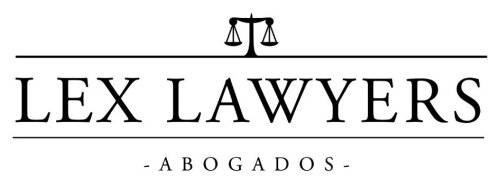Best Employment Rights Lawyers in Chile
Share your needs with us, get contacted by law firms.
Free. Takes 2 min.
Or refine your search by selecting a city:
List of the best lawyers in Chile
About Employment Rights Law in Chile:
Employment Rights in Chile are protected by various laws and regulations aimed at ensuring fair treatment and conditions for workers. These laws cover areas such as minimum wage, working hours, overtime pay, vacation entitlements, maternity leave, and termination procedures. It is important for both employers and employees to be aware of their rights and responsibilities to maintain a healthy and productive work environment.
Why You May Need a Lawyer:
There are situations where legal assistance may be necessary to protect your Employment Rights in Chile. Common reasons to seek a lawyer include disputes over unpaid wages, unfair dismissals, discrimination, harassment, or other workplace violations. A lawyer can provide guidance on how to address these issues effectively and ensure your rights are upheld.
Local Laws Overview:
In Chile, the Labor Code is the primary legislation governing Employment Rights. Some key aspects of the law include a minimum wage, maximum working hours, paid annual leave, social security contributions, and protections for pregnant women and parents. Employers must comply with these regulations to avoid legal consequences and ensure a safe and fair work environment for their employees.
Frequently Asked Questions:
1. What is the minimum wage in Chile?
The minimum wage in Chile is set by the government and is adjusted annually. As of 2021, the minimum wage is $320,500 Chilean pesos per month.
2. How many hours can I work per week?
Under Chilean law, the maximum working hours per week are 45 hours. Any additional hours must be paid as overtime.
3. Am I entitled to paid vacation leave?
Yes, employees in Chile are entitled to paid annual leave based on the length of their employment. The minimum annual leave is 15 days for the first year of work, increasing with tenure.
4. What are my rights if I am pregnant?
Pregnant employees in Chile are entitled to maternity leave and additional protections against discrimination. Employers must provide a safe working environment for pregnant workers and accommodate any necessary time off for prenatal appointments.
5. How can I address workplace harassment?
If you experience harassment in the workplace, you should report it to your employer or HR department. If the issue is not resolved internally, you may need legal assistance to file a complaint with labor authorities.
6. Can my employer terminate my contract without cause?
In Chile, employers can terminate employment contracts without cause, but they must provide notice and severance pay as required by law. If you believe the termination was unfair, you may have legal options to challenge it.
7. What should I do if my wages are not paid on time?
If your employer fails to pay your wages on time, you can file a complaint with labor authorities or seek legal assistance to ensure you receive the compensation you are owed.
8. Can I join a labor union in Chile?
Yes, employees in Chile have the right to form or join labor unions to advocate for their collective rights and negotiate with employers. Union participation is protected by law.
9. Are there any restrictions on hiring foreign workers in Chile?
Employers in Chile must comply with specific regulations when hiring foreign workers, including obtaining work permits and adhering to local labor laws. Legal advice may be necessary to navigate these requirements successfully.
10. How can I verify if my employer is complying with labor laws?
You can request information from your employer about their labor practices and review your employment contract for details on your rights. If you suspect violations, consider seeking legal advice to address the issue effectively.
Additional Resources:
For more information on Employment Rights in Chile, you can contact the Directorate of Labor (Dirección del Trabajo) or seek guidance from the Ministry of Labor and Social Security (Ministerio del Trabajo y Previsión Social). These governmental bodies provide resources and support for employees and employers regarding labor regulations and rights.
Next Steps:
If you are facing legal challenges related to Employment Rights in Chile, consider consulting with a qualified labor lawyer who can provide personalized advice and representation. A lawyer can help you understand your rights, navigate complex legal processes, and advocate for a fair resolution to your workplace issues. Don't hesitate to seek legal assistance to protect your Employment Rights and ensure a just and respectful work environment.
Lawzana helps you find the best lawyers and law firms in Chile through a curated and pre-screened list of qualified legal professionals. Our platform offers rankings and detailed profiles of attorneys and law firms, allowing you to compare based on practice areas, including Employment Rights, experience, and client feedback.
Each profile includes a description of the firm's areas of practice, client reviews, team members and partners, year of establishment, spoken languages, office locations, contact information, social media presence, and any published articles or resources. Most firms on our platform speak English and are experienced in both local and international legal matters.
Get a quote from top-rated law firms in Chile — quickly, securely, and without unnecessary hassle.
Disclaimer:
The information provided on this page is for general informational purposes only and does not constitute legal advice. While we strive to ensure the accuracy and relevance of the content, legal information may change over time, and interpretations of the law can vary. You should always consult with a qualified legal professional for advice specific to your situation.
We disclaim all liability for actions taken or not taken based on the content of this page. If you believe any information is incorrect or outdated, please contact us, and we will review and update it where appropriate.
Browse employment rights law firms by city in Chile
Refine your search by selecting a city.















